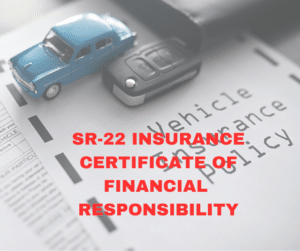At Witt Law Group, we handle a lot of Assault–DV cases. The term domestic violence or DV is often used incorrectly. The actual charge in Washington is typically Assault Fourth Degree—DV. Domestic violence is a special allegation and the DV “tag” is attached to the underlying criminal charge of Assault. The domestic violence tag is used to clarify the relationship between the aggressor and the victim. It can be attached to several underlying criminal charges but is most often associated with Assault 4th degree.
Attorney Ryan Witt explains more about the DV tag in this video.
Why is Domestic Violence tag used when the assault did not involve my spouse?
The definition of domestic violence encompasses a tremendous number of relationships. It can even be a former relationship such as a roommate from your past. Occasionally, the tag is attached and it is incorrect so it is important to tell your defense attorney exactly what type of relationship you have with the alleged victim. It is important to have the domestic violence tag removed if it is not appropriate because it carries far more significant penalties.
If your spouse did not want to “press charges” and you believe the charges will be dropped, watch this video explaining the mandatory arrest rule.
How do I know if the event I am accused of really amounts to domestic violence?
Again, the event is reviewed for the underlying charge so your attorney is looking at your DV charge from the view of an Assault. To understand more about Assault charges, see our page on Assaults. The attorney will also make sure that the domestic violence tag is appropriate but the more serious issue with the Assault charge.
Why did my attorney or the court require me to do a domestic violence assessment?
If you were requested or required to do an evaluation, it is because there are aspects to the case that warrant considering your risk for domestic violence currently and in the future. Often, people who are accused of Assault—DV do not feel they have an issue. In fact, many people who act controlling or violent toward a partner, roommate, or child, have witnessed this conduct as a child so they might consider it normal. To prevent any future violence or risk of future criminal charges, it is important to know whether an intervention or treatment is warranted.
If the domestic violence evaluation indicates you have an chance to re-offend or you are not understanding the issue with your conduct, a year of Domestic Violence Perpetrator Treatment will likely be recommended. If the conduct alleged occurred in front of children, special parenting classes that address the impact of domestic violence trauma on children will be included.
What are some signs that I am exhibiting domestic violence in my relationships?
To understand if you are engaged in an unsafe and unhealthy relationship where domestic violence conduct is occurring, it is important to talk to a professional. If you are a victim, there are organizations such as the YWCA that can help you understand your options for leaving and help you with the risks associated with leaving. If you are currently in danger, it is very important to notify law enforcement that you fear for your life.
Sometimes, people have unhealthy or toxic relationships and the behavior between the two individuals begins to escalate to conduct that becomes criminal. Warning signs of this are behaving in a way that is controlling or possessive. Before there is physical violence, the perpetrator might track the person on the phone or laptop by downloading apps or software that “watches” everything the person is doing. Sometimes, the perpetrator will say things like “it keeps him/her accountable” but the intention is clearly control. Hiding things from your partner or locking things away that belong to your partner is a sign of control and dominance. Putting up cameras inside the home is very common. The perpetrator is keeping the person in captivity even if she/he is free to leave the home—everything inside and outside the home is being monitored. And, when there is violence, the perpetrator will use the excuse that s/he needed to do that because the victim “made me do it” or “I just love you so much” that the assault needed to occur. This is a very dangerous sign.
What if I did hit or shove my partner but she is also violent with me?
Despite the label of perpetrator and victim, the domestic violence relationship rarely occurs in a vacuum with such clean labels. There is frequently substance abuse, emotional abuse, and physical abuse that occurs from both parties. This is no excuse for harming someone nor will your defense attorney argue “she hits him, too!” However, it is important for your attorney to understand the dynamic of your relationship with the alleged victim.
The history of violence or abuse in your relationship helps your attorney address defense, treatment, and whether re-engaging in that relationship is advisable. Every year, we have a client or two who, against our advice, returns to a toxic and/or violent relationship only to learn there is exponential legal misery that comes from that choice. Self-reflection is critical in Assault—DV cases. Take the time to figure out how to avoid this from ever happening again. We suggest our clients seek a licensed mental health counselor to properly evaluate what the best course of action is for healthy relationships in your future.

Get help now
Whether you choose to handle your case alone or engage the Witt Law Group, being informed and prepared is essential. Early involvement of an attorney can significantly impact your chances of a fair recovery, allowing you to focus on healing while we handle negotiations with insurance adjusters to secure fair compensation for your injuries.




